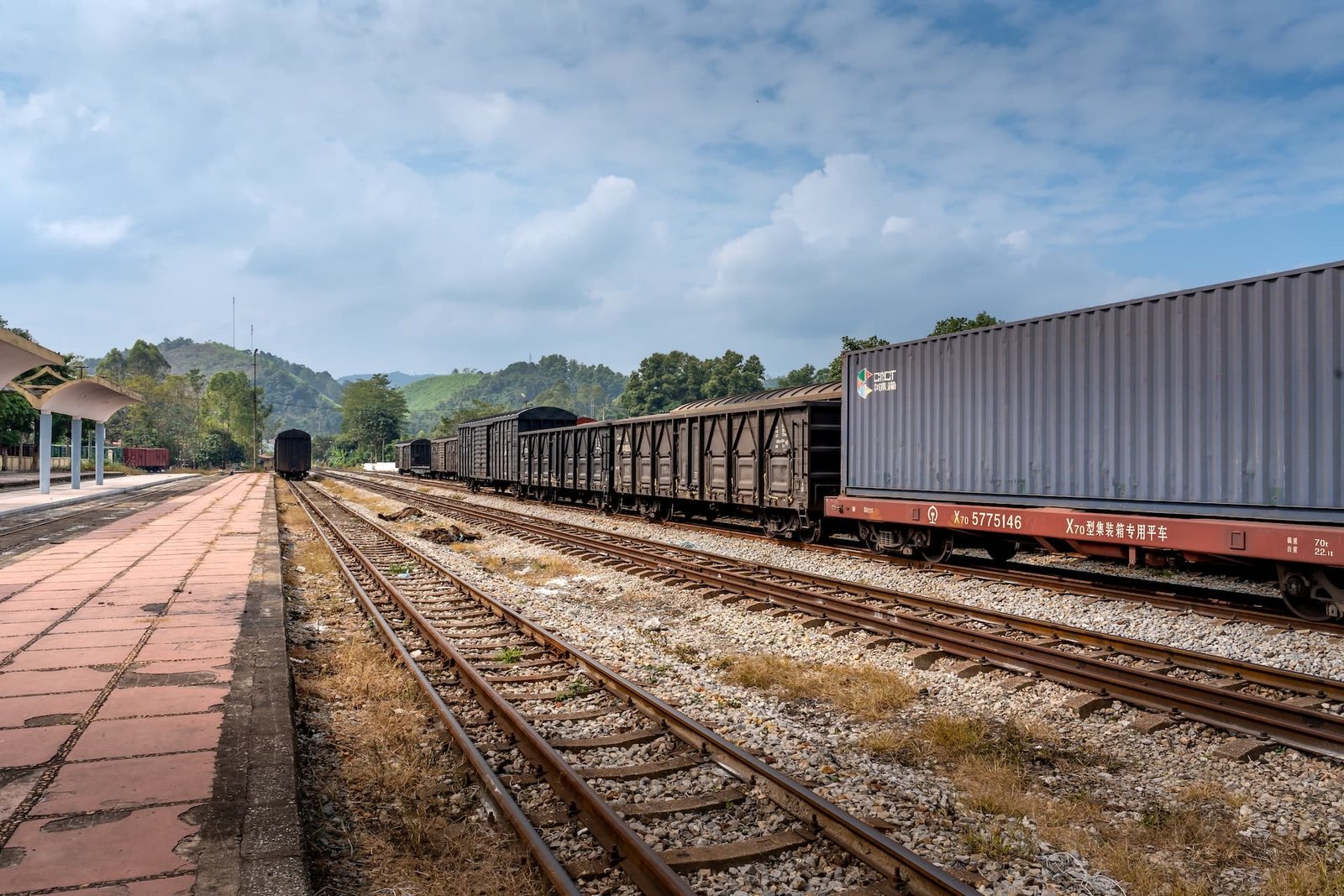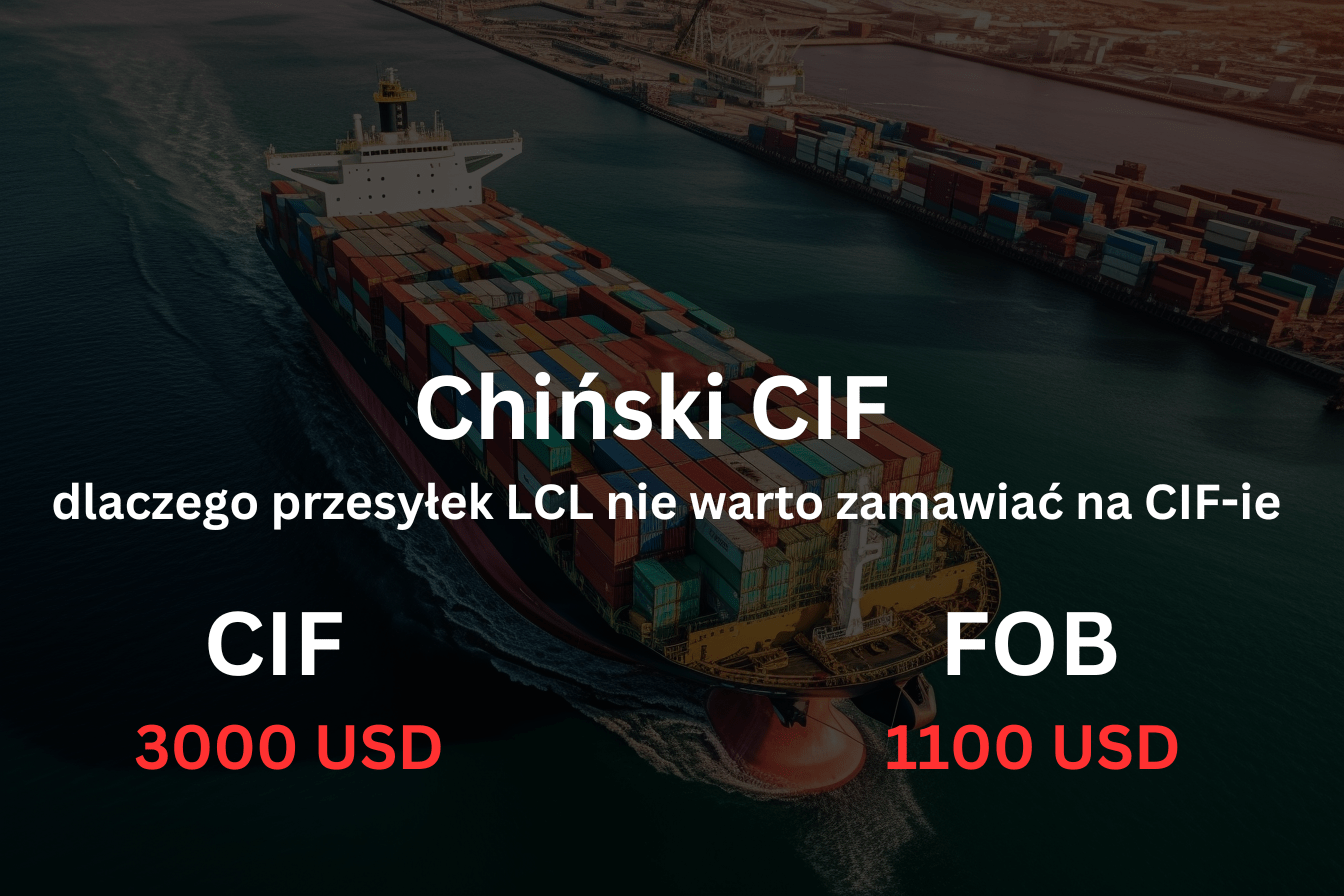What are INCOTERMS?
By way of introduction, INCOTERMS are international trade rules that apply worldwide. They are used in international transactions to define responsibilities, costs and risks between buyer and seller. The author of Incoterms is the International Chamber of Commerce (ICC), which created the rules to facilitate smooth and efficient international trade.
What is CIF Incoterms?
Incoterms CIF (Cost insurance and freight) - Cost insurance and freight -> the seller is responsible for delivering the goods to the buyer. Only applies to transport marine or inland waterway. The seller is responsible for loading the cargo on board the vessel, further risks of loss of goods or damage are already the responsibility of the buyer. The seller has fulfilled his obligations and the risk will be on us.
In a CIF, there are two relevant ports: the port where the goods are to be loaded on board and shipped and the port of destination where the goods are to be delivered. The risk shifts from the seller to the buyer once the cargo has been placed on board the vessel at the port of loading. It is the seller's responsibility to contract with the carrier so that the goods actually arrive at the port of destination. For example, if the goods are shipped in Yantian, China, and we want them delivered, the seller has the responsibility to enter into such a carriage contract with the carrier. However, the risk passes to us once the goods are loaded onto the ship in Yantian.
When specifying INCOTERMSA, the following formula is used -> CIF + add port of destination e.g. Gdansk.
The port of discharge will always be stated in the contract, but it is worth ensuring that the port of shipment is also stated in the contract. This can come in handy when, for example, you want to compare the price for leaving a particular port with other companies.

-
10% discounts for the first transport
-
On offer: Rail transport, aviation and marine
Why is it not worthwhile to send LCL shipments on CIF?
When deciding to order cargo on freight, we can often come across an unfair practice that involves a very favourable price for transport. As an importer, we decide to order goods on just such conditions. Later, when the goods have already arrived at the port, it turns out that we have to pay very high port costs, which are much higher than the costs we initially assumed. When the initial price for transport was USD 700, it turns out that the port costs are USD 2 000.
This practice at Cif can apply to all directions, but is most common precisely in imports from China. It only applies to sea transport and for this reason, the ordering of LCL general cargoes
The issue relates to the high local costs at the port of destination charged by fraudulent companies. It may be that the seller in China is not aware that such huge costs are charged at the destination port. Chinese exporters, when choosing logistics partners in China, look for the lowest price solution. Often the reason is the desire to attract as many customers as possible with a good offer on transport. It is often the case that companies offer the same goods from manufacturers and their only differentiator is precisely the price of transport.
The forwarding company from China, which carries out the transport for the seller from whom we buy the goods, comes to an agreement with the Polish forwarding company, which, once the goods arrive, will charge the importer, in this case us, very high port fees, which can sometimes be several times the initial price that was assumed. This allows the Chinese shipping company to reduce the cost it quotes to the Chinese seller and makes up for this amount when charging very high port charges.
Later, when the cargo is close to the port of destination, we are informed that the ship is about to enter the port, together with an invoice with costs that can sometimes be staggering.
The offer at first appears to be the cheapest and ends up being the most expensive on the market.
This type of action is the order of the day and unfortunately it is a white-gloved action. Everything is in accordance with the law and international terms. Incoterms CIF unfortunately allows this type of action. In the CIF formula, the importer is unfortunately responsible for all other costs including precisely the port costs.
In reality, the price of port costs is not very high, but dishonest companies add horrendous margins there and make a profit.
Many companies get caught in this trap, which unfortunately is a no-brainer. When the goods arrive at the port we have to pay these huge dues, and if we don't then over time the storage charges for the goods start to accrue, which can also amount to a lot.
How to prevent this type of trap on the CIF ?
The first thing to do is to ask the Chinese seller what the terminal port costs will be in the destination country, in this case Gdansk. The seller will often need to ask their forwarding company for this information. It is also worth asking for the contact details of the Polish co-loader who will take over the cargo , they are the ones who charge these huge fees. Then ask them what costs will have to be covered for a given load between, for example, Ningbo and Gdansk. If you do not know exactly what information to ask, we can help you with this completely free of charge and check the costs. Just email us 🙂 .
Incoterms CIF may be treated fairly and such high costs may not be charged, but it is worth checking so that you are not cheated.
Another way to verify whether an offer is safe is to ask the seller to prepare an offer on the terms and conditions of the DPU Gdansk. Such terms and conditions will already include local costs in China, freight cost and just the port costs in Gdansk. Then, having such an offer for DPU, we compare how much it differs from the offer for CIF. For example, if the CIF offer is USD 700 and the DPU offer is USD 2,000, then we can be sure that high port charges will already be waiting for us.
Most importers, however, choose to use an external company for transport, preferably from Poland, and use the formula FOB or EXW. This is when we have the greatest control over the load.
In summary, such action can be found commonly in the market, but there is still a chance that standard port costs will be charged at the port, but it is worth making sure you are well informed on this issue so that you are not unpleasantly surprised later.
CASE STUDY- a brief history:
The importer makes a deal with a Chinese seller who offers similar goods to other sellers, but has offered the lowest price for transport to Gdansk. The importer recalculates all the costs and it turns out that the goods can make a pretty good profit. They finalise the transaction and the goods are shipped on CIF terms, the importer having previously checked that on the CIF formula, the goods would already be available for collection in the port of Gdansk. The price of transport was USD 700, so everything is in line.
The excited importer gets the information that the goods are about to enter the port on a ship. However, along with the information comes an invoice from a Polish shipping company for the port costs, which amount to USD 3 000. At first, the importer thinks, after all, this must be a mistake, the entire shipment has already been paid for. He contacts the company that charged such a high fee and it turns out that it is true and they will not release the goods without paying this amount. The importer starts to read about the so-called Chinese CIF and realises that there is not really much that can be done. In the meantime, he is still told that he has seven days to collect the goods before storage costs start to accrue. In this case, the now powerless importer pays the full amount of USD 3700 and takes back the goods. In the end, it turns out that he overpaid several times and was, in short, cheated. This story has already happened to many importers. That is why, my dear friends, it is worth educating yourself on the subject and always being a step ahead to expand your import empires, rather than fighting dishonest players. It is a waste of nerves and time.
We invite you to read other articles !







